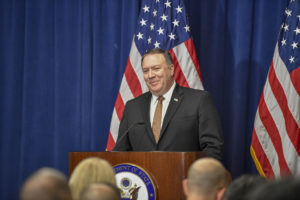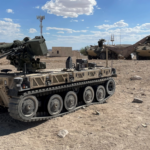
The Secretary of State on Friday issued an emergency notice to move forward with $8.1 billion in arm sales to Saudi Arabia, the United Arab Emirates and Jordan, citing an increasing threat from Iran to the partner nations. Secretary Mike Pompeo invoked a provision in the Arms Export Control Act, which allows the administration to bypass congressional approval to complete weapons transfers to the three countries, which includes 22 deals for aircraft support, surveillance drones and missiles. “These sales will…

 By
By 










